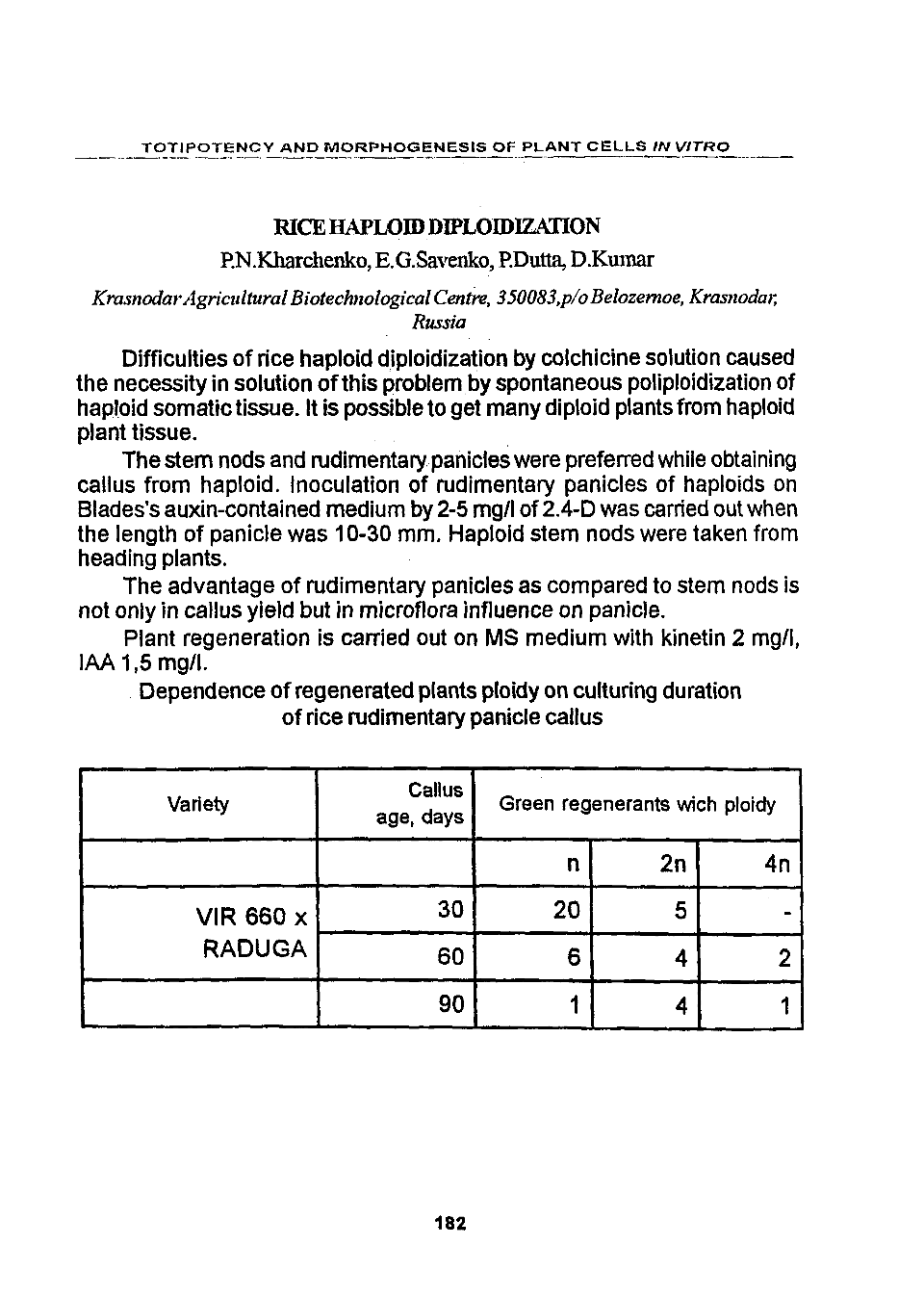

T O T IP O T E N C Y A N D M O R P H O G E N E S IS OF P L A N T C E L L S
IN V IT R O
RICE HAPLOID DIPLOIDIZATION
P.N.Kharchenko, E.G.Savenko, P.Dutta, D.Kumar
KrasnodarAgriculturalBiotechnological Centre, 350083,p/oBelozernoe, Krasnodar,
Russia
D ifficulties o f rice haploid diploidization by colchicine solution caused
the necessity in solution o f this problem by spontaneous poliploidization of
haploid somatic tissue. It is possible to get many diploid plants from haploid
plant tissue.
The stem nods and rudimentary panicles were preferred while obtaining
callus from haploid. Inoculation of rudimentary panicles of haploids on
Blades's auxin-contained medium by 2-5 mg/l of 2.4-D was carried out when
the length of panicle was 10-30 mm. Haploid stem nods were taken from
heading plants.
The advantage o f rudimentary panicles as compared to stem nods is
not only in callus yield but in microflora influence on panicle.
Plant regeneration is carried out on MS medium with kinetin 2 mg/l,
IAA 1,5 mg/l.
Dependence o f regenerated plants ploidy on culturing duration
o f rice rudimentary panicle callus
Variety
Callus
age, days Green regenerants wich ploidy
n
2n
4n
V IR 660 x
RADUGA
30
20
5
-
60
6
4
2
90
1
4
1
182
Научная электронная библиотека ЦНСХБ









